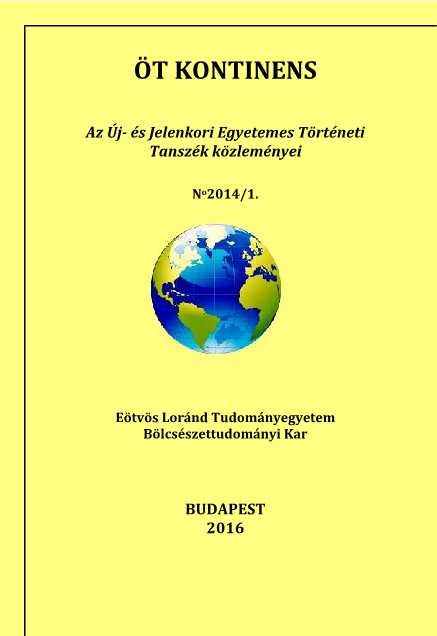La Hongrie face au projet mitterrandien de confédération européenne
Hungary against the Project of Mitterand about the European Confederation
Author(s): Christopher PichonnierSubject(s): Transformation Period (1990 - 2010)
Published by: Eötvös Loránd Tudományegyetem, Új-és Jelenkori Egyetemes Történeti Tanszék
Keywords: European Confederation; François Mitterrand; Hungary; Post-Yalta Europe; European Economic Community; French foreign policy; Central-Eastern Europe; USSR; József Antall; Miklós Németh; Géza Jeszenszky
Summary/Abstract: At the dawn of major geopolitical transformations in Europe and on the eve of 1990, French President François Mitterrand, well-aware of the shifting political and economic conditions in Central and Eastern Europe as well as in the USSR, and worried about the future of the European Economic Community, calls for the creation of a new pan-European structure – The European Confederation - designed to « associate all states of the continent into a common and permanent organisation for exchanges, peace and security ». In the weeks following its presentation, the project, in line with the gaullist tradition of a greater Europe « from the Atlantic to the Urals », is rather well-received by European political leaders. However, as time goes by, it has to face growing criticism and skepticism from the international community before ultimately being buried after the summer of 1991. Based on the archives of the French presidency and Ministry of Foreign Affairs, the Hungarian National archives and the documents from the François Mitterrand Institute in Paris, this article will deliver a brief overview of the background and origins of Mitterrand's European Confederation project before focusing on its reception by Hungarian political leaders and media during the course of the years 1990 and 1991.
Journal: ÖT KONTINENS
- Issue Year: 2014
- Issue No: 1
- Page Range: 241-260
- Page Count: 20
- Language: French

